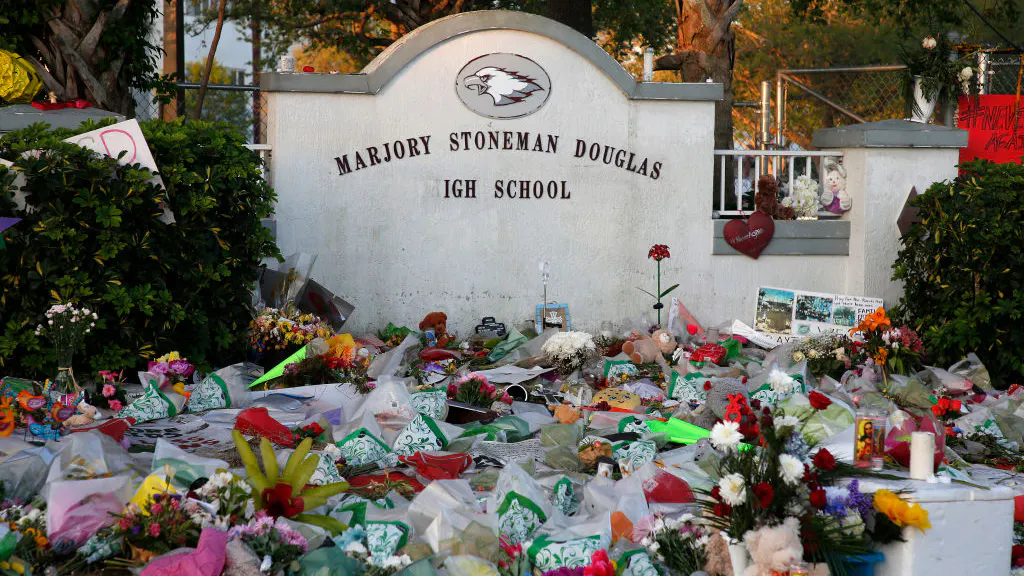On February 14, 2018, a gunman walked into Marjory Stoneman Douglas High School in southeast Florida and mercilessly took the lives of 17 people. The massacre topped the headlines of every news outlet for weeks as students took to social media to advocate for increased gun control laws.
In the aftermath, parents demanded answers and the school board had none.
School board member Nora Rupert admitted in a deposition that internal corruption led to safety failures that contributed to the death of students and teachers. When she tried to speak up about these failures, she claimed that she was met with an intimidation campaign from other board members and the district’s superintendent, Robert Runcie.
Runcie is a graduate of both Harvard University and Northwestern University’s business school. He started his career in education in 2003 when his college buddy Arne Duncan — who President Barack Obama would eventually tap to run the Department of Education in 2009 — hired him to run the Chicago Public School district’s IT office.
In 2011, with a glowing reference from Duncan, Runcie applied to be the superintendent of Broward County Public Schools (BCPS), the sixth-largest school district in the nation with an operating budget of $3.8 billion. Runcie was anointed to the position by the BCPS school board, despite a Florida grand jury report that advised that the school board not select chief executives due to their “corruption” and “incompetence” problem.
The same jury report also concluded that there was an ongoing culture of fear and intimidation on the BCPS school board. A culture that Runcie would perpetuate.
“We are aware of top-level managers who openly talk of targeting whistleblowers, boat rockers, and other malcontents whose primary sin appears to be exposing flaws in the system and a lack of leadership among senior staff,” the report reads.
As superintendent, Runcie convinced the Broward County taxpayers to fund an $800 million bond initiative called “Safety, Music, Renovation, and Technology,” or “SMART.” According to Florida TaxWatch, in the first four years of the SMART bond’s existence, the district only spent 5% of the money on safety projects, which was far below what the district was claiming to be spending.
In comes Kenny Preston. A young, student journalist who reviewed the documents from Florida TaxWatch and wrote a report to share with the victims’ families and present to the school board. He believed if safety measures had been put in place and the school actually used SMART bond funding, fewer students would have been killed.
During his research process, Preston also came across a discipline matrix problem in Florida schools that became mandated at the behest of the Obama administration’s “restorative justice” policies. This policy was championed by Runcie, so Preston spoke with school board chairwoman Nora Rupert — Runcie’s most vocal critic.
Rupert confirmed to Preston that under the current discipline matrix, school administrators were not required to refer students to law enforcement for felonies. Preston thought this may have contributed to the shooter’s ability to bypass criminal punishment for earlier offenses, so he included Rupert’s comments in his report.
Preston presented his findings on the SMART bond and the discipline matrix during a school board meeting on April 10, 2018. In the meeting, Rupert disavowed her comments and claimed that she had never spoken with Preston.
“[Any quotation] would be from a public meeting,” Rupert said. “My record stands on its own, and I usually don’t comment on misinformation… it’s very hurtful… I really can’t excuse people using quotes for political gain.”
In a 2019 deposition obtained by The Daily Wire, Rupert admitted that Preston’s report was correct and that corruption led to delayed safety measures that could have saved lives.
According to the deposition, Rupert said that security updates were underway following the SMART bonds creation in 2014. Increased measures included a single point of access into schools, upgraded fire systems, video upgrades, fiber optics, fencing, and more. Four years later, at the time of the massacre, none of these protections were in place.
Preston had included all of this information in his report, which Rupert had denounced just one year earlier.
Rupert later admitted that what Preston had written about the status of the bond was true and claimed that Runcie had instructed the school board members to denounce the report and Preston.
She proceeded to detail an alleged intimidation and bullying campaign that silenced her from supporting Preston’s report or whistleblowing about the safety failures in the aftermath of the shooting.
Q: “During your course and tenure in the school board, have you been yourself a victim of threats and intimidation by the school district, Mr. Runcie, and others who have a different political and policy view than you?
Rupert: “That would be fair to say.”
Rupert also said that school board members bullied her into prioritizing the needs of the board over the needs of distraught parents. “Some of the board members felt I was helping Parkland parents and not being what a chair should be,” Rupert said.
These same board members allegedly followed Rupert into a bathroom to harass her and threatened her with an ethics violation.
“It was other board members and, you know, we’ll just have to make an ethics violation,” Rupert said. “If we can’t get her this way, we’ll get her another way.”
Runcie was at the forefront of a campaign to unseat Rupert for her disobedience as well. Rupert claims he was “perpetuating a myth that I was a racist, going into my communities, my African-American churches, galvanizing them, bringing buses to intimidate.”
Both Runcie and Rupert still remain in their respective positions.

.png)
.png)

